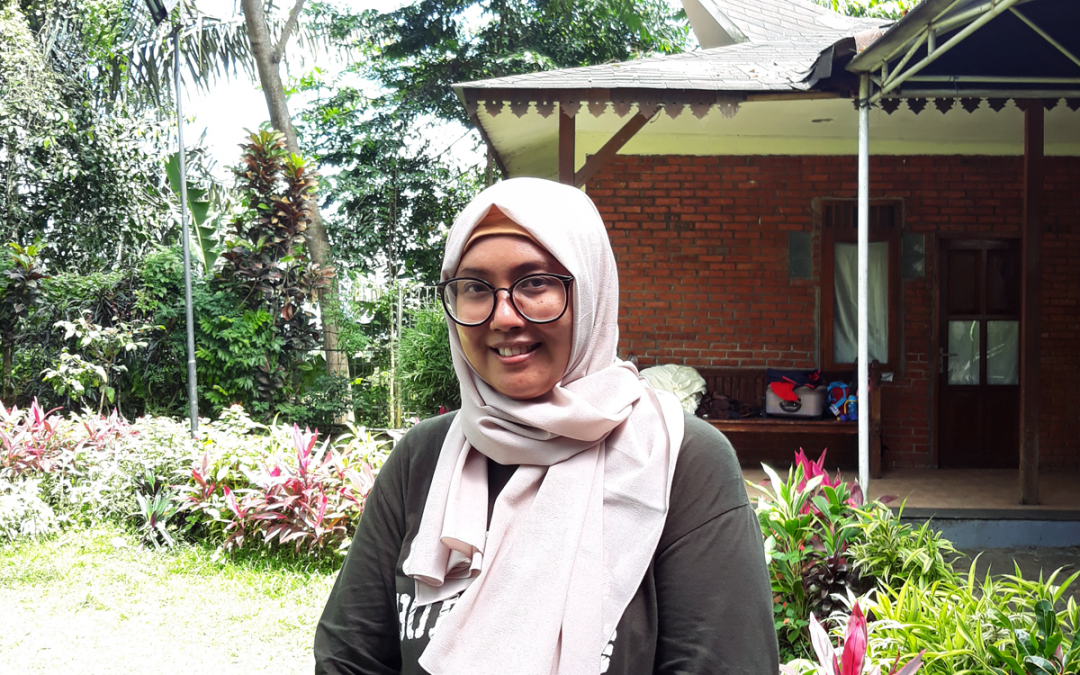Tell us a bit about yourself.
My name is Reita Annur. I am from Dompet Dhuafa, a humanitarian NGO and a Lembaga Amil Zakat (LAZ) — a national organization that has been recognized by the state. We collect funding from the Muslims community, specifically from the ZISWAF (Zakat, Infaq, Alms and Wakaf) community which is channeled to the dhuafa people or the needy. The reason why we follow this is because we are a unique NGO that receives funding but also provides funding for beneficiaries in accordance with the provisions of Muslims. As for Islamic funding, it is a requirement to have eight beneficiaries that come from Zakat. Whereas for Infaq and Wakaf, Wakaf can be more general idea – you do not have to be extremely dhuafa or ‘in need’. But we also receive investment funding from CSR companies for instance, because in addition to channeling finance for dhuafa community, we are also running a social enterprise which attracts investors. The profits from these investment will of course, return to the dhuafa community.
What kinds of women’s empowerment initiatives is Dompet Dhuafa running?
We run a variety of programs. One is the called Warung Perwira or Entrepreneurial Women which aims to empower women. Why did we choose to target women? Because in a lot of households, the husband’s income is often insufficient and not stable enough to sustain the family household. So educating women on how to be able to survive if anything undesirable happens, so they can be independent economically, foster a household and also be a role model for their children.
What are the challenges in obtaining funding?
We are indeed facing challenges with fundraising outside of Indonesia. However, for the domestic NGO inshallah we already have the trust from the people of Indonesia. In terms of scaling up fundraising to go international, we are still lacking. In fact, we already know the theory of fundraising, it’s just that we are still not confident about the application and execution of it. The language barrier in making a proposal is also an obstacle.
What challenges have you faced in building this enterprise?
We strive to empower the people in need, or dhuafa. So the challenge is how to educate these people, improve their welfare and income at the Provincial Minimum Wage (UMP) level. However, in the implementation sometimes we collide with the characters that we help, because as a channel of Islamic funds, we give grants rather than stocks or loans. This character is sometimes a bit difficult to be formed so the success of a program that we run in area differs depending on the character of the receiver. With some programs in Central Java, we are very successful and even able to scale up the industry – for example, initially we built 10 dairy farmers and it is now almost a village, with the main income coming from milk dairy cows. We provided 10 cows initially, which has now reached nearly 200 dairy cows. However, when we conduct the same program in other areas, sometime we get different results. So, there are conditions – conditions on the ground that are sometimes out of our control. That is our challenge.
How can we help to minimize the fundraising gap?
At the moment, we need the skills and knowledge on how to scale projects up. We have been able to empower farmers and breeders which has resulted in the scaling up of production. Now we are looking to scale up both in terms of financing and skill. Hopefully this can be achieved soon.





